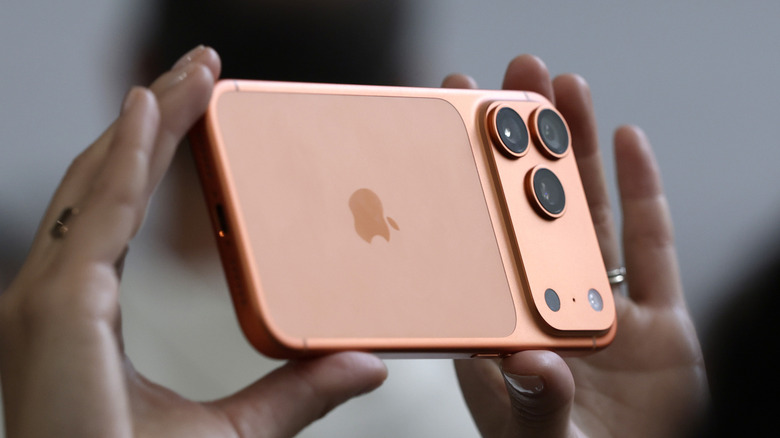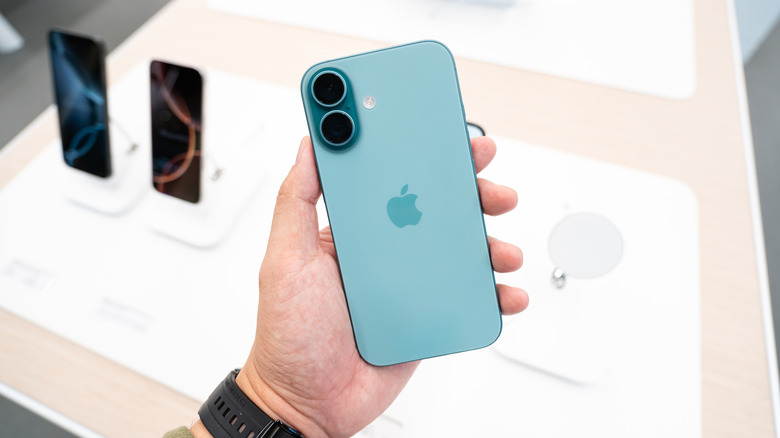What's The Average Lifespan Of An iPhone, And Are There Ways To Extend It?
It goes without saying that iPhones aren't cheap, yet for many, they have become essential. Between their call and text capabilities, a litany of work-related apps, and more, it can be difficult to go without. Unfortunately, like any piece of technology, iPhones aren't designed to last forever. There will inevitably come a day when they struggle to function, charge, or even fail to turn on at all, likely requiring a full replacement. To best prepare for this day, it's in your best interest to be aware of how long you can expect to get out of your iPhone with consistent use.
There's no guarantee that your iPhone will give out at a specific point, but there are certain time thresholds to be aware of. All in all, Apple anticipates its iPhones will last around three years, admitting that most are likely to last a bit longer. There's also the matter of battery degradation, which also occurs based on individual use. iPhone 14 and earlier batteries retain 80% of their capacity after 500 charge cycles, while iPhone 15 and later batteries retain 80% of their original capacity after 1,000 charge cycles. It can be replaced, though this is expensive and may not be worth it if the phone itself is already acting up. Additionally, over time, older iPhone models no longer receive iOS updates. There's no official statement from Apple regarding it, but on average, an iPhone gets 6-8 years of updates, making them less reliable and potentially prone to security breaches after that period.
Regardless of whether you have one of the best or worst iPhone models, it's important to take good care of your phone before it becomes unusable. Thus, following some best use and care practices will make all the difference.
Several tricks can make your iPhone last longer
With any luck, you should get several years of good use out of your iPhone. If you're looking to maximize the time before a replacement is needed, there are some steps to take. While there's not much to be done about Apple-imposed software obsolescence, you can take care of the battery. Do your best to avoid leaving your phone to charge overnight, and try not to charge it to 100% to prevent degradation. Generally, you want to keep your iPhone battery between 20% and 80%. Keeping your iPhone and its battery within the optimum temperature range of 32 to 95 degrees Fahrenheit will also prevent damage to your battery.
Proper use and care of your iPhone is essential for its longevity, too. Utilize screen protectors and cases to keep it in as good a shape as possible, and to keep it safe from drops and scratches that can add up over time. Similarly, cleaning out vents, charging ports, and other small crevices will prevent dust and debris from entering the internals, allowing them to function properly without risk of damage. As mentioned, software updates are helpful, and so is being mindful of your storage. The more you have stored, the harder your iPhone has to work, shortening the life of the CPU and RAM.
It's not a great idea to get a used iPhone after a certain point, but it is to take care of the potentially dated one you still have. By following some straightforward guidelines and being responsible with your tech, ideally, your iPhone will last you an impressively long time.

